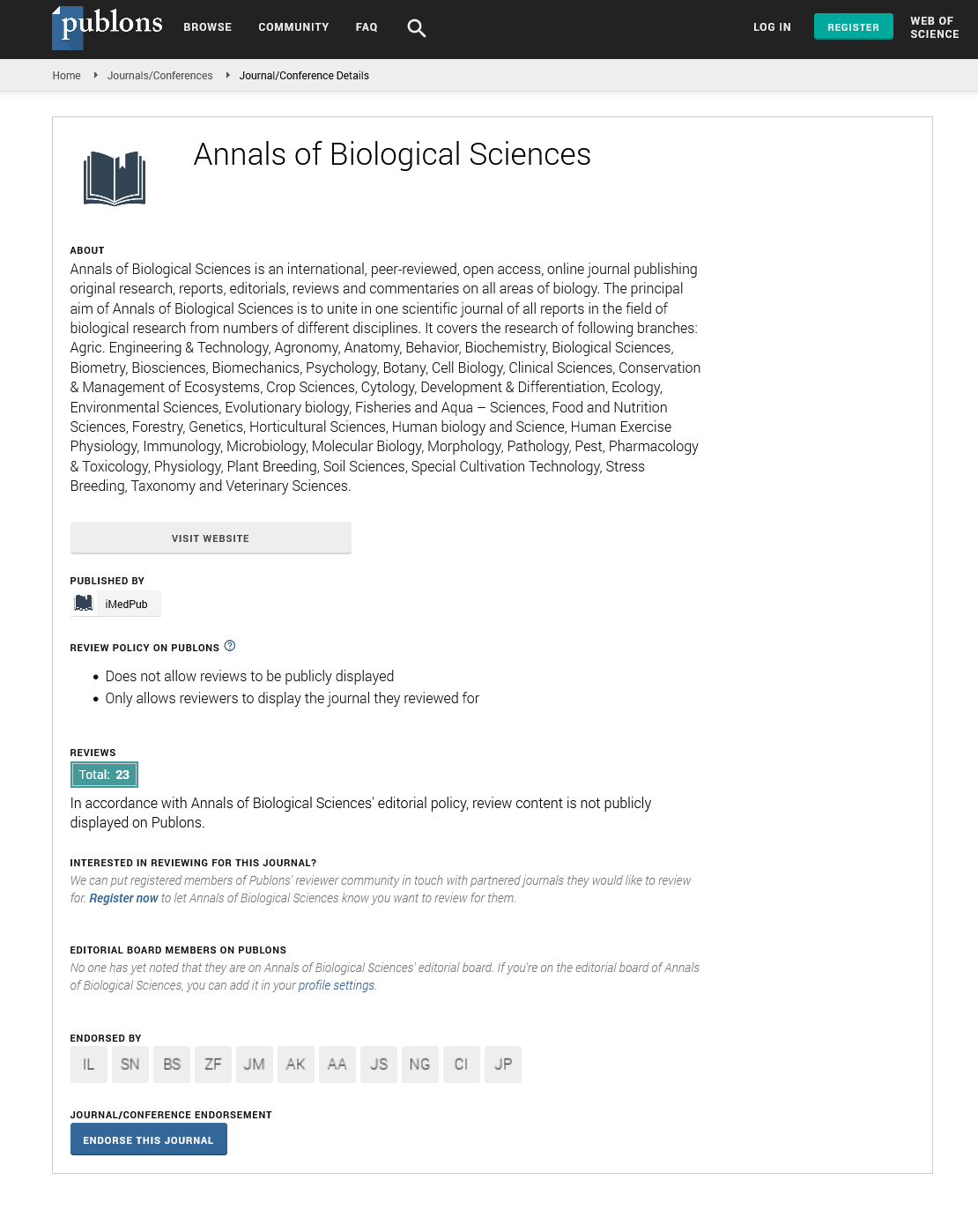ISSN : 2348-1927
Annals of Biological Sciences
Abstract
Effect of Glucose and Alcohol on the Growth and Development of 4 Hydroxyaminoquinoline N-oxide (4HAQO) Induced Pancreatic Adenocarcinoma in Rats
The research work aimed at evaluating the effects of glucose and alcohol on 4 Hydroxyaminoquinoline 1 oxide (4HAQO) induced pancreatic carcinogenesis in rat models. Twenty Wistar albino rats were divided into four groups of five rats each. Three groups of rats were injected with 15 mg of 4HAQO through the tail vein weekly, for three weeks. One week after 4HAQO administration, rats were administered with either glucose or alcohol daily until experiment termination. Sixteen weeks after the first administration of 4HAQO all surviving rats were sacrificed; blood samples were assayed for glucose and pancreatic enzyme (lipase and amylase) levels. Excised pancreases were fixed in formalin, stained with hematotoxylin-eosin. Administration of 4 Hydroxyaminoquinoline to rats resulted in increased pancreas weights and pancreatic lesions as observed from histological studies. A significant decrease in blood glucose level was found in rats that received a glucose solution as compare to other 4HAQO injected rats. Significant increases in pancreatic serum lipase and amylase activity were found in groups that received glucose and alcohol. Pancreatic lesions were verified in all 4HAQO injected rats. Histological sections of pancreatic tissues showed the presence of lesions ranging from dilation of ducts, pleomorphic large cells, atypical acinar cells, reactive hyperplasia, necrosis, and dysplasia. Adenocarcinoma was found in one rat from the glucose group. Moderate to severe dilation of ducts and hyperplasia was seen in the 4HAQO control group, glucose, and alcohol groups. The association between glucose and pancreatic cancer was observed, also alcohol demonstrated carcinogenesis promoting effect.
Author(s): Aisha Kiru and Umar AM
Abstract | PDF
Share This Article
Google Scholar citation report
Citations : 406
Annals of Biological Sciences received 406 citations as per Google Scholar report
Annals of Biological Sciences peer review process verified at publons
Abstracted/Indexed in
- Google Scholar
- China National Knowledge Infrastructure (CNKI)
- WorldCat
- Publons
- ROAD
- Secret Search Engine Labs
Open Access Journals
- Aquaculture & Veterinary Science
- Chemistry & Chemical Sciences
- Clinical Sciences
- Engineering
- General Science
- Genetics & Molecular Biology
- Health Care & Nursing
- Immunology & Microbiology
- Materials Science
- Mathematics & Physics
- Medical Sciences
- Neurology & Psychiatry
- Oncology & Cancer Science
- Pharmaceutical Sciences
